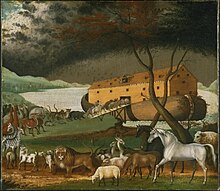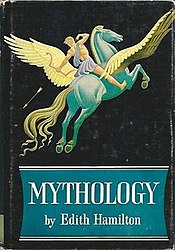Lord's Prayer
The Lord's Prayer (also called the Our Father or Pater Noster among other names) is a venerated Christian prayer that, according to the New Testament, was taught by Jesus to his disciples. Two versions of it are recorded: a longer form in the Gospel of Matthew as part of the Sermon on the Mount, and a shorter form in the Gospel of Luke as a response by Jesus to a request by "one of his disciples" to teach them "to pray as John taught his disciples." The context of the prayer in Matthew is a discourse deploring people who pray ostentatiously.
Samuel Johnson
Samuel Johnson (18 September 1709 [O.S. 7 September] – 13 December 1784), often referred to as Dr. Johnson, was an English writer who made lasting contributions to English literature as a poet, essayist, moralist, literary critic, biographer, editor and lexicographer. Johnson was a devout Anglican and committed Tory, and is described by the Oxford Dictionary of National Biography as "arguably the most distinguished man of letters in English history". He is also the subject of perhaps the most famous biography in English literature, namely The Life of Samuel Johnson by James Boswell.
Born in Lichfield, Staffordshire, Johnson attended Pembroke College, Oxford for just over a year, before his lack of funds forced him to leave. After working as a teacher, he moved to London, where he began to write for The Gentleman's Magazine. His early works include the biography Life of Mr Richard Savage, the poems London and The Vanity of Human Wishes, and the play Irene.

Lexicography
Lexicography is divided into two separate but equally important groups:
- Practical lexicography is the art or craft of compiling, writing and editing dictionaries.
- Theoretical lexicography is the scholarly discipline of analyzing and describing the semantic, syntagmatic and paradigmatic relationships within the lexicon (vocabulary) of a language, developing theories of dictionary components and structures linking the data in dictionaries, the needs for information by users in specific types of situations, and how users may best access the data incorporated in printed and electronic dictionaries. This is sometimes referred to as 'metalexicography'.
Seven virtues
In the Catholic catechism, the seven Christian virtues or heavenly virtues refers to the union of two sets of virtues: from ancient Greek philosophy, are prudence, justice, temperance (meaning restriction or restraint), and courage (or fortitude); and the three theological virtues, from the letters of Saint Paul of Tarsus, are faith, hope, and charity (or love). These were adopted by the Church Fathers as the seven virtues.

The sage of Omaha
Not wanted on voyage
Not Wanted on Voyage is a 1957 British comedy film directed by Maclean Rogers and starring Ronald Shiner, Brian Rix and Catherine Boyle.[1] The film was made at British National Studios.

Noah's Ark
Noah's Ark (Hebrew: תיבת נח; Biblical Hebrew: Tevat Noaḥ) is the vessel in the Genesis flood narrative (Genesis chapters 6–9) by which God spares Noah, his family, and a remnant of all the world's animals from the flood. According to Genesis, God gave Noah instructions for building the ark. Seven days before the deluge, God told Noah to enter the ark with his household and the animals. The story goes on to describe the ark being afloat for 150 days and then coming to rest on the Mountains of Ararat and the subsequent receding of the waters. The story is repeated, with variations, in the Quran, where the ark appears as Safina Nuh (Arabic: سفينة نوح "Noah's boat"). The Genesis flood narrative is similar to numerous other flood myths from a variety of cultures. The earliest known written flood myth is the Sumerian flood myth found in the Epic of Ziusudra. Searches for Noah's Ark have been made from at least the time of Eusebius (c.275–339 CE) to the present day. There is no scientific evidence for a global flood, and despite many expeditions, no evidence of the ark has been found.The challenges associated with housing all living animal types, and even plants, would have made building the ark a practical impossibility.

Saint Christopher
Saint Christopher (Greek: Ἅγιος Χριστόφορος, Ágios Christóforos) is venerated by several Christian denominations as a martyr killed in the reign of the 3rd-century Roman Emperor Decius (reigned 249–251) or alternatively under the Roman Emperor Maximinus II Dacian (reigned 308–313). There appears to be confusion due to the similarity in names "Decius" and "Dacian".However his veneration only appears late in Christian tradition, and did not become widespread in the Western Church until the Late Middle Ages, although churches and monasteries were named after him by the 7th century.

Zeus
Zeus (/ˈzjuːs/; Ancient Greek: Ζεύς, Zeús, [zdeǔ̯s];Modern Greek: Δίας, Días [ˈði.as]) was the sky and thunder god in ancient Greek religion, who ruled as king of the gods of Mount Olympus. His name is cognate with the first element of his Roman equivalentJupiter. His mythologies and powers are similar, though not identical to those of the Indo-European deities such as Indra, Jupiter, Perun, Thor, and Odin.

Prometheus
Prometheus (/prəˈmiːθiəs/ prə-mee-thee-əs; Greek: Προμηθεύς [promɛːtʰeús], meaning "forethought") is a Titan in Greek mythology, best known as the deity in Greek mythology who was the creator of mankind and its greatest benefactor, who stole fire from Mount Olympus and gave it to mankind.
Ancient myths and legends relate at least four versions of the narratives describing Prometheus, his exploits with Zeus, and his eternal punishment as also inflicted by Zeus. There is a single somewhat comprehensive version of the birth of Prometheus and several variant versions of his subjection to eternal suffering at the will of Zeus.

Mythology
Mythology: Timeless Tales of Gods and Heroes is a book written by Edith Hamilton, published in 1942 by Little, Brown and Company. It has been reissued since then by several publishers. It retells stories of Greek, Roman, and Norse mythology drawn from a variety of sources. The introduction includes commentary on the major classical poets used as sources, and on how changing cultures have led to changing characterizations of the deities and their myths. It is frequently used in high schools and colleges as an introductory text to ancient mythology and belief.

eruption
puny
debris
awesome
dispersed
conflagration
obliterate
rue
initiate
In some senses the English word is a back-formation from initiation. Related: Initiated; initiates; initiating; initiator.
deplorable
hoard
sage
congenial
aegis
detriment
senile
longevity
doddering
imbibe
virile
week26
hostile
prevalent
lethargic
paramount
remiss
superficial
rebuke
evince
vogue
Perhaps the notion is of being "borne along on the waves of fashion." Italian voga "a rowing," Spanish boga "rowing," but colloquially "fashion, reputation" also probably are from the same Germanic source. Phrase in vogue "having a prominent place in popular fashion" first recorded 1643. The fashion magazine began publication in 1892.
tussle
intrinsic
The form in English was conformed to words in -ic by 18c. Meaning "belonging to the nature of a thing" is from 1640s. Related: Intrinsical; intrinsically.
jettison
Middle English jetteson (n.) "act of throwing overboard" is from Anglo-French getteson, Old French getaison "act of throwing (goods overboard)," especially to lighten a ship in distress, from Late Latin iactionem (nominative iactatio) "a throwing, act of throwing," noun of action from past participle stem of iactare "to throw, toss about" (see jet (v.1)). Related: Jettisoned.
inevitable
lucrative
acute
transient
gist
terse
cogent
week27
array
culminate
pinnacle
ardent
Ardent spirits (late 15c.) so called because they are inflammable, but the term now, if used at all, probably is felt in the figurative sense. The figurative sense (of "burning with" passions, desire, etc.) is from late 14c.; literal sense of "burning, parching" (c. 1400) remains rare. Related: Ardently.
obscurobscure (v.)
bereft
exultation
constrict
prodigy
invective
voluminous
besmirch
Our Gayness and our Gilt are all besmyrcht. ["Henry V," IV.iii.110]
Related: Besmirched; besmirching.retrospect
vitriolic
inveterate
pungent
adamant
It is perhaps literally "invincible, indomitable," from a- "not" (see a- (3)) + daman "to conquer, to tame," from PIE root *deme- "to constrain, force, break (horses)" (see tame (adj.)). "But semantically, the etymology is rather strange," according to Beekes, who suggests it might be a foreign word altered in Greek by folk etymology, and compares Akkadian (Semitic) adamu.
Applied in antiquity to a metal resembling gold (Plato), white sapphire (Pliny), magnet (Ovid, perhaps through confusion with Latin adamare "to love passionately"), steel, emery stone, and especially diamond, which is a variant of this word. "The name has thus always been of indefinite and fluctuating sense" [Century Dictionary].
humilithumility (n.)
early 14c., "quality of being humble," from Old French umelite "humility, modesty, sweetness" (Modern French humilité), from Latin humilitatem (nominative humilitas) "lowness, small stature; insignificance; baseness, littleness of mind," in Church Latin "meekness," from humilis "humble" (see humble (adj.)). In the Mercian hymns, Latin humilitatem is glossed by Old English eaðmodnisse.y
egotist
沒有留言:
張貼留言